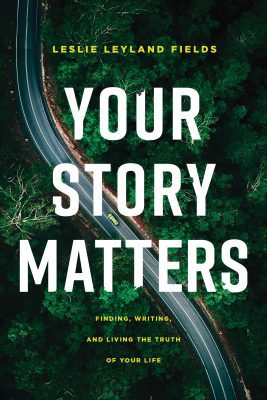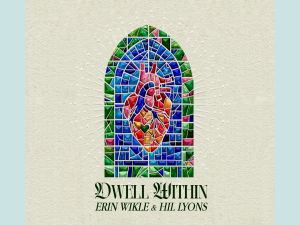I’ve seen it 500 times. How rapt the listening faces are at hearing another’s words. How surprised writers are when they hear their own words aloud: Dave reading about his mother’s diagnosis of lung cancer. Joan telling about her daughter’s first day back at school after the accident. When Molly tried to sign the divorce papers and couldn’t.
Last month I sat in a circle of writers from remote villages in Alaska. Darlene had never written a story from her life before, and neither had she read her words aloud to anyone. She wrote about her adult alcoholic children, how she kept trying to help them, take care of them. Her strength wore out day by day. One day, she fainted. The doctor told her she was dangerously anemic and malnourished. She could have died, he told her. She must rest and take care of herself. Darlene read her story to us slowly, her face calm but hands trembling. She ended simply with the sentence, “I, too, am important.” She read this sentence with pressed lips, then looked up at the four of us with resolve. She needed to proclaim those words to us, and we needed to witness them. That truth she was finally able to speak and to share may save her life.
Yes, we write to save our own lives, to speak words into the wordless places in our lives. And many times, that is enough. But there is more. We write for ourselves, and maybe we even write for God. If so, no matter what happens to our work from there, we already have an impressive audience! But there’s more: readers. The stories we write are not complete without readers. Stories, however raw and unfinished, need voice and an audience. And listening to others’ stories often sparks and vivifies our own stories in response.
Heather, who continues to attend workshops, later wrote this about her first time sharing her words:
The first time I sat in a writing circle, I felt nervous. My group had writers of all levels—a managing editor of a major magazine; several already published authors; and me, the most inexperienced. I had confidence in my academic writing ability as a Doctor of Clinical Psychology, but I had never ventured into the scary whirlpool of writing my own story.
Would they rip my manuscript (and my heart) to shreds with criticism? Would they view my story as not worthy compared to their own or others’?
But it turned out so differently than I expected. When I told my story, I felt seen and heard—two things I had not felt before with regards to my parenting experience. I could see tears well in one woman’s eyes, a woman with her own special-needs daughter who could relate to what I wrote. More than all this, I could see that these women could relate to the universal theme of my story. We all had experienced the pain of not being seen, of not being heard, of having our stories minimized, marginalized, not wanted.
All the writers encouraged me to keep writing, telling me my story was necessary because it could help many others. More than all the positive writing growth, I grew in my ability to share vulnerably and to receive others’ stories gratefully.
Gary, a pharmacist and a new writer, was also anxious about sharing his work with others. Later, he wrote this about his experience:
Throughout the week, I found we all had insecurities in our writing skills. Rejection letters, a harsh remark from a friend, or being chided by a family member about “doing something with your life” all take their toll. I learned I was not alone. In fact, I was in pretty good company!
In my small group, we read one another’s work. We listened intently as the writer would read aloud what they had written. We spoke the truth in love about how the words had an impact on us. We were writers taking a risk to bare our souls. In the end, we were rewarded for doing so because we wanted the best for one another. Our personal insecurities were held in the hands of other writers with care and acceptance.
Yes, it’s a risk to open your freshly scrawled memories and even your polished stories to others. Once you do it, you’ll be strengthened and encouraged; most of your anxieties will fade. But there are deeper reasons to share your work. Why are your stories so important, so powerful? Because the Book of This World is unfinished without your story.
In the Bible, Creation begins with a Creator who generates the entire spinning exploding cosmos with nothing but words: let there be, let there be, and there was. And God pronounced it good, very good. Why wasn’t it perfect? It was not perfect because the world was not finished. Our work since we were given the breath of life is the same work given to Adam as the animals paraded before him: to speak back, to name all that is, to finish what was started, to offer it back to God and to one another.
Could it be that God intended creation to be a conversation instead of a monologue? God speaks, utters forth and the word-birthed cosmos responds often better than we do: “The heavens declare the glory of God, and the sky above proclaims his handiwork. Day to day pours out speech, and night to night reveals knowledge. . . . Their voice goes out through all the earth, and their words to the end of the world” (Psalm 19: 1-2; 4, ESV).
In Jesus’ triumphal entry into the city of Jerusalem, the spectators greeted him with such great gladness that the Pharisees appealed to Jesus to shut them up. But he can’t and he won’t because “if they’re silent, the very rocks would cry out” (Luke 19:40, ESV). Yes, this is hyperbole, this is a mystery too deep for me, but of this I am sure: God speaks and all of creation answers back—in joy, in praise, in truth. That’s what we’re doing in this book. We’re still naming the word-spoken world; we’re writing the story of our life. We’re answering back. Not just to ourselves and to God but also to one another.
One of the men who followed Jesus, John, knew about this. He tells us in this opening to his letter exactly why he’s writing:
“That which was from the beginning, which we have heard, which we have seen with our eyes, which we have looked at and our hands have touched—this we proclaim concerning the Word of life. The life appeared; we have seen it and testify to it, and we proclaim to you the eternal life, which was with the Father and has appeared to us. We proclaim to you what we have seen and heard, so that you also may have fellowship with us. And our fellowship is with the Father and with his Son, Jesus Christ. We write this to make our joy complete”(1 John 1:1-4, ESV).
John wrote, we’re writing these things to you—that we’ve seen, heard, touched, handled—to make our joy complete! Incredibly, it wasn’t enough to witness the life of Jesus among them. Their joy isn’t complete without passing it on! And when they do this, a new community is formed: Through the reading of these words, we are drawn together, and together, we’re drawn into fellowship with the Father and Son.
Our own stories do no less. When we pass on our stories to one another, we form a very real triangular community: We’re drawn into the presence and the hearts of one another, and together, we’re drawn closer to God. This is holy, holy work. Even for those who are uncertain of God, shared words can profoundly move hearts and join lives.
An excerpt from Your Story Matters: Finding, Writing, and Living the Truth of Your Life (NavPress, 2020) by Leslie Leyland Fields, published with permission.

Do Good:
- Read Your Story Matters: Finding, Writing, and Living the Truth of Your Life (NavPress, 2020) by Leslie Leyland Fields.
- What’s a story you can tell from your unique experience? Get it down and find a reader.
- What makes a good story? Where can you find “the magic” in one? And how do our values integrate with our own story? Take our free email course and discover exactly how to find your voice, own your story and share it with others.
- Visit westernusa.salvationarmy.org to find The Salvation Army nearest you.
- Give to support the fight for good in your community.
- Sign up to receive the Do Good Digest in your inbox each week.













Comments are closed.